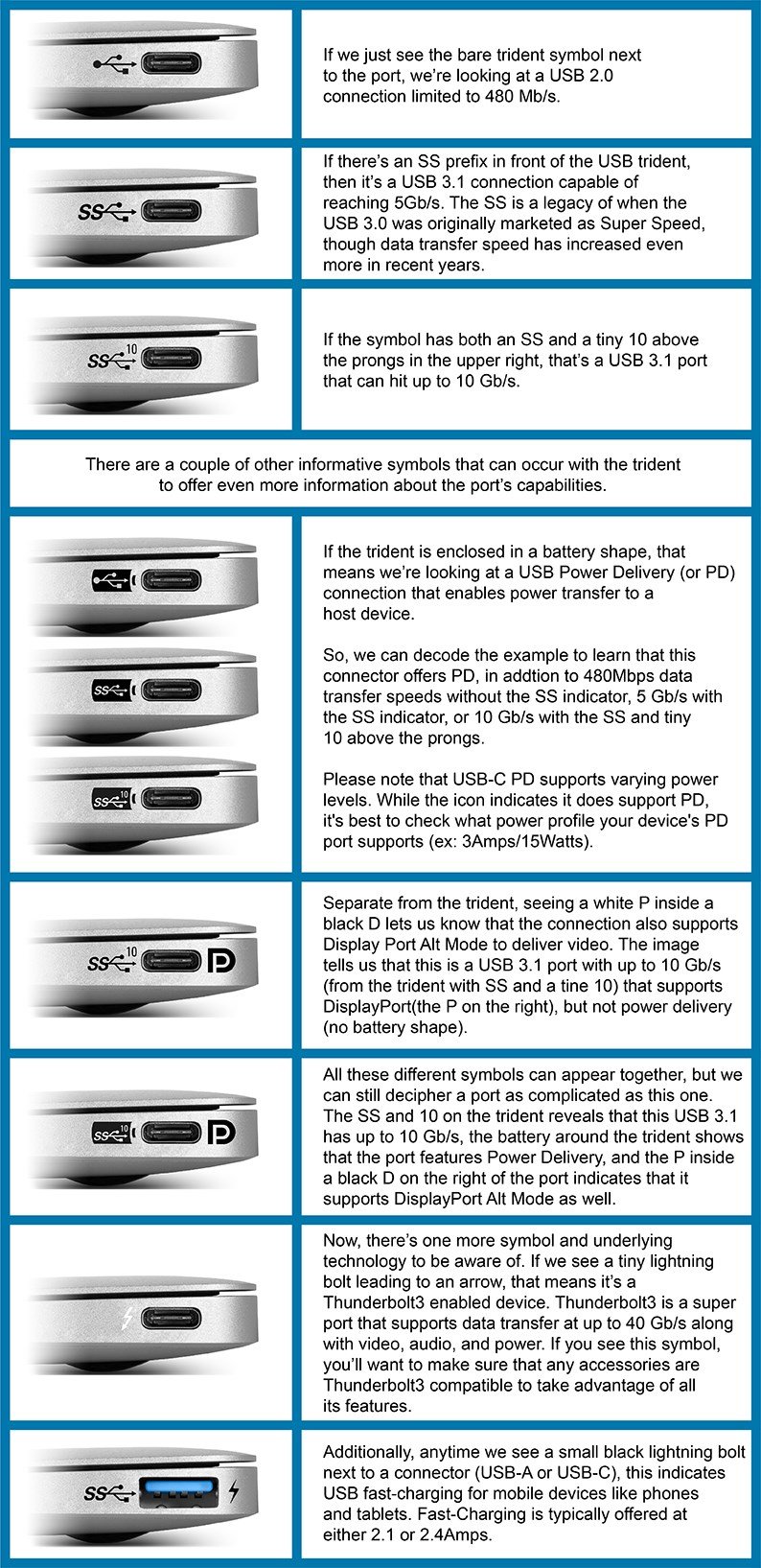this post was submitted on 09 Sep 2024
1595 points (97.4% liked)
Technology
60076 readers
3870 users here now
This is a most excellent place for technology news and articles.
Our Rules
- Follow the lemmy.world rules.
- Only tech related content.
- Be excellent to each another!
- Mod approved content bots can post up to 10 articles per day.
- Threads asking for personal tech support may be deleted.
- Politics threads may be removed.
- No memes allowed as posts, OK to post as comments.
- Only approved bots from the list below, to ask if your bot can be added please contact us.
- Check for duplicates before posting, duplicates may be removed
Approved Bots
founded 2 years ago
MODERATORS
you are viewing a single comment's thread
view the rest of the comments
view the rest of the comments

I think that maybe having two similar lightning bolt symbols that mean different things wasn't the best design decision that the USB guys could have made.
lol the whole history of usb is full of design fuckyous
USB-A: the 4 dimensional port.
I mean, they fixed that with USB-C (after introducing one small USB port, mini-USB, that wasn't reversible, with the tensioners that wear out on the expensive (device) side and and then introducing micro-USB which fixed the tensioners but still wasn't reversible).
I'd personally kind of like to have magnetic breakaway connectors or similar so that I can't damage devices if they fall, especially given that micro-USB and USB-C aren't the most-physically-robust of connectors. Adapters with proprietary ways to do this exist:
https://www.amazon.com/MoKo-Magnetic-Adapter-Straight-Thunderbolt/dp/B0CGLM6PYN
But they aren't part of the USB spec. If they ever switch to something like that, we're gonna have another phase of incompatibility.
as easy as it is to shit on usb, kids these days will never know the misery of having a different, un-hub-able, proprietary port for every device: ps/2 for mouse and keyboard, 1/8th inch audio or SPDIF for anything audio, SCSI, parallel/serial ports, etc etc
The 'Thunderbolt' symbol is Intel's proprietary technology. Apple and Intel made it. First apple registered Thunderbolt as a trademark but later they transferred it to Intel. The lightning bolt icon which supports fast charging phones or other devices when connected to the laptop is different and developed by the USB guys.
Things are muddied a bit though because USB 4 has built in support for thunderbolt
Everything defined in the Thunderbolt 3 spec was incorporated into the USB 4 spec, so Thunderbolt 3 and USB 4 should be basically identical. In reality the two standards are enforced by different certification bodies, so some hardware manufacturers can't really market their compliance with one or the other standard until they get that certification. Framework's laptops dealt with that for a while, where they represented that their ports supported certain specs that were basically identical to the USB 4 spec or even the Thunderbolt 4 spec, but couldn't say so until after units had already been shipping.
One should note that though Thunderbolt over USB-C offers the same speed and connectivity as a native thunderbolt cable, the native cable can be 40m long whereas the USB-C implementation is max 2m
Brother, now that thunderbolt 4 has been introduced it's even more confusing. Some of these labels are already out of date